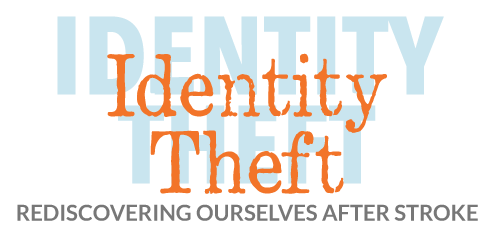
02 Jan Great Conversation on Reddit AMA (Ask Me Anything)
On December 23, my mom and I hosted an AMA on Reddit. Through this forum, Redditors could directly (and anonymously) ask my mom any question they wanted, while I helped type out the answers. I thought this would be the perfect way for my mom to engage with others in the stroke community and continue to spread the Identity Theft message.
It was fantastic! We had over 100 comments, nearly 2,000 upvotes (essentially likes), and presumably significantly more views. The questions we got were thoughtful, knowledgeable, genuine, and most surprisingly for an anonymous online forum, extremely civil. We did our best to respond to people’s questions with helpful advice taken from the themes of Identity Theft. And our advice and guidance was appreciated and very well-received.
My mom wrote Identity Theft in order to help people handle the emotional trauma of stroke or other identity shattering injuries/diseases more effectively. And I think the book does a fantastic job of doing that. The AMA was amazing because it helped us touch people who haven’t yet read the book, and we also got affirmation that the Identity Theft message is and will continue to help people. It was a nice sign that the five years my mom, brother, dad and countless others spent writing Identity Theft will deliver the desired impact.
Here are a few threads on the AMA:
-
“Wow, thank you so much! I have a close family member who has a stroke a few years ago. It was so hard to see him unable to communicate with us, and still is. I always thought even from the beginning that he was able to understand what we said, mainly based on facial expressions and laughing in response to jokes. But as he is still not able to communicate very well, I don’t know. While not being able to communicate thoughts into words is incredibly frustrating, for me my biggest fear was that he may have gone through months (maybe years) of confusion not understanding what others were saying. I really appreciate you taking the time to do this! I wish people shared these stories more often.”
-
“Thanks for the response! Because I’m still so new to the stroke scene (is that even a thing?!), it didn’t even occur to me the literature that could help me post-stroke. I just ordered you book because a) I love reading, and b) it’s nice to see someone else who was young and active who persisted.”
-
“As a new stroke survivor (8 wks) my deficiency with speech and communication is most frustrating. My question is, does this introduce or encourage anxiety? Are there some suggestions to reduce this feeling? The complexness with planning, completing, remembering tasks and daily activities are also anxiety producing. However friends and family don’t always see these issues as symptoms or deficiencies. Thank you for your story and book it is on my reading list.”
-
DM: “Absolutely! It is very frustrating and anxiety inducing. I have two suggestions 1) try to cut back on your obligations and focus on your recovery as much as you can. This may help you recover more and maybe reduce the overall complexity in your life that is causing you stress. 2) be honest and up front with your friends and family, but try not to get frustrated with them. For people who have never been through stroke, aphasia or other cognitive deficiencies are really not intuitive. At the risk of sounding like a lecturing grandparent, I will say that 8 weeks probably feels like forever, but you are still super early into your recovery. My best piece of advice would be to work your tail off trying to regain as much as you can because the early months are so important. Recovery doesn’t end after the first 12 months like many people say, but I think it probably does slow.”
-
It was great to be able to get the message out to so many people, and to see that all the hard work my mom (and others) put into this book is helping improve lives. I look forward to finding more ways to help my mom and dad get the message out and help others through Stroke Forward.
